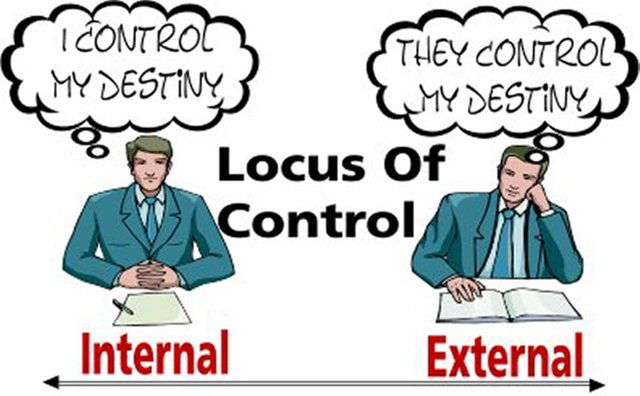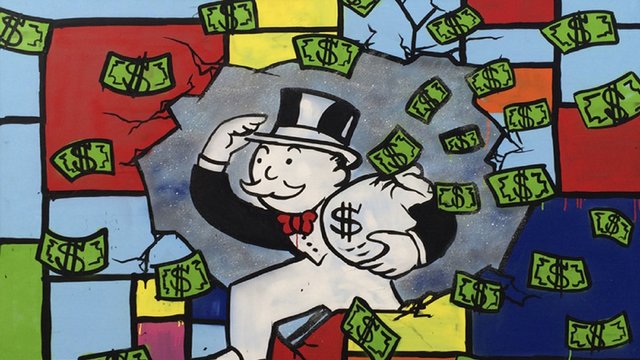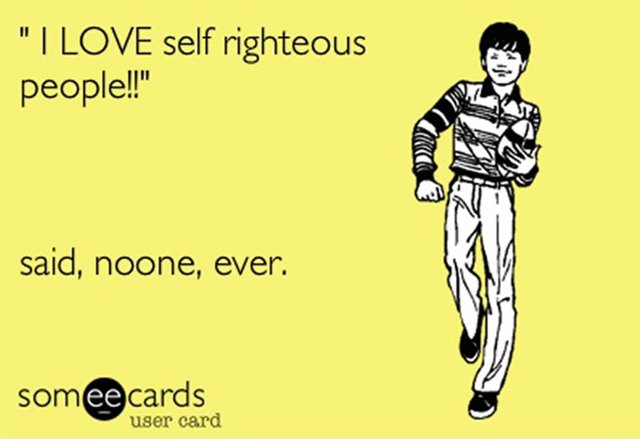
Political viewpoints. First you look at the facts, then you apply logic to them, and finally, you form an opinion. That's how it works, right?
Actually, I think there's a good chance you don't hold your political views for the reasons you think you do. Let me explain...
Suppose you lose all ability to feel. You are now pure logic. There is no pleasure, pain, joy, anger, curiosity or amusement. At this point, your might think: "Why get up in the morning? Why learn new things? Why think? Why do anything at all? Why not just sit perfectly still until death? After all, I literally don't care about anything."
Congratulations, you are now a nihilist.
The first thing we can glean from this thought experiment is that we can't function without our feelings. Even rational behaviors like feeding or avoiding injury are rooted in our feelings.
From this, we can deduce that anything we care about is subjective from the outset, because caring is a feeling. Thus, only people who have feelings about things will care about them, and finally, only people who have feelings about things will care to have arguments about them.
Any opinion a person holds that is not a matter of dry fact is going to be there because the person feels a certain way. It's there to provide a rationale for the feeling. This is a crucial insight. Opinions are rationales for feelings.
When you attack a person's opinions, what you're attaking are the lines between the dots in a connect-the-dots picture. You may be able to erase the lines, but all you have really done is expose the dots. You have exposed who that person really is, deep down inside. As soon as the attack is over, the person will begin to connect the dots again. Since none of the dots have moved (the person's feelings remain the same), the dots will mostly form the same picture as before.
Changing the dots is usually not possible through rational argument. Feelings can't be controlled, only managed.

The left/right split in politics? It's about locus of control. The locus of control is a concept from psychology. A person with an internal locus of control believes that he or she is in full control of his or her fate. A person with an external locus of control believes that the outside world is in full control of his or her fate. A left winger is a person who leans towards believing in an external locus of control. A right winger is a person who leans toward believing in an internal locus of control.
From the right winger's point of view, individuals shape their own reality, and they get what they deserve. From the left winger's point of view, reality shapes individuals, and they don't always get what they deserve. I would argue that these aren't so much ideologies as they are basic life philosophies. The next time you attack someone's political opinions, keep that in mind.

Changes in a person's life situation can move the dots. Business people are often right wingers because they learned how to control their own destiny. This makes them a bit impatient. "I was a regular person once. I was broke. I worked at McDonalds. I slept in my car because I couldn't afford rent. But I stopped feeling sorry for myself, took a bit of risk, and now I own a multi-million dollar business. If I could do it, so can everyone else. Nobody helped me. I had to figure it all out on my own. So why should I pay higher taxes to help the poor again? It's their own fault!"

The appeal of the left wing is that you get to be the Good Samaritan. "The masses are not to be blamed for their poverty. They have just been unfortunate. Minorities are not to be blamed for their socioeconomic issues. They are victims of systematic discrimination."
Both of these viewpoints are difficult to prove or disprove, and that's because they're not actually rational arguments, but placeholders for feelings you already possess.
Tell me what you think of this analysis in the comments below. Thanks for reading!
I like this! But I don't completely agree with the fact that left and right can be distinguished by the inward or outwards focus.
Personally, I find myself blaming myself for what happens. Whether I ace something or I fumble up completely. It's my fault and I'm responsible.
I created my own success and carved my path as an entrepeneur. And yes, today I also own a business and am fairly successful.
However, my political views do not align with that. I see myself as a leftist anarchist, and believe some people truly do not have the same chances as others. Education, upbringing, and ethnicity comes to mind.
People here in Cambodia have almost nothing, and it's impossible for them to change their lives. There are just no opportunities whatsoever if you live in the countryside.
If everyone in the world had the same opportunity and possibilities, than I would agree completely with your statement. However, that is not the world we live in. Can you blame a poor Cambodian farmer for it's situation?
I don't believe you can.
Downvoting a post can decrease pending rewards and make it less visible. Common reasons:
Submit
I would describe Cambodia as an extreme example to use, because of its regime, its corruption and its abject poverty. But I could defend a right-wing point of view still:
A government is made up of people from a culture. The attitudes, opinions and behaviors of the government suggest something about the culture, and vice versa. Individual actions collectively form a culture, and vice versa. There is thus some culpability on the part of the culture for the kind of government you get, and vice versa. I feel it's fair to say that, to some degree, people get the government that they deserve. I think problems with the culture is the main reason why attempts to introduce a democratic form of government so often fail.
As for education and upbringing, they have some effect, but I think there is also a big element of personal culpability. In countries where market forces reign free, a characteristic wealth distribution tends to develop. A minority dares to gamble, and makes the decisions that gets it out of poverty, while the majority sticks to the safe old ways, and remains poor.
Socialism basically makes the argument that it's unfair that only a few people are crafty enough to find their way out of poverty, and seeks to correct it by taking from the rich (the ones who were crafty) and giving to the poor (the ones who weren't so crafty). The justification for this is that the not-so-crafty people can't help being who they are, and thus can't help their situation, so why should they suffer for this?
Capitalists argue that being crafty is a choice that you make, not a trait that you possess. You can choose to do something different than sustenance farming or underpaid factory work. There are always opportunities if you just look for them. Not looking for them, or not daring to make unorthodox choices, is simply lazy and cowardly. Because hard work and boldness should be rewarded (not laziness and cowardice), no wealth redistribution is required, because the market is already fair.
Even an uneducated farm boy can sneak in a few moments to learn things. It's not impossible to learn the alphabet on your own, or to find old books to read, and then learn to run a small business. There are many stories of people who have done that. People who lived in appalling conditions. Somehow, these people are seen as uniquely abled, but all they did was try something different and put a bit of effort into it.
Or so goes the argument of the free-market capitalist anyway.
In cases of serious, systematic discrimination against a group of people, it's a different story. A black slave in the United States did not have the same opportunities as everyone else. There was a deliberate and artificial limitation on what they could do, and one could argue that some of those limitations are still there in today's United States, de facto if not de jure. In such situations, it's no longer about the left wing vs the right wing, though, because no one wants oppression.
Downvoting a post can decrease pending rewards and make it less visible. Common reasons:
Submit
I'll admit that I did not have countries like Cambodia in mind when I wrote the article. It's a much easier argument to make to American and European readers, because there aren't these unnatural factors affecting people.
Downvoting a post can decrease pending rewards and make it less visible. Common reasons:
Submit
Great reply!
And I have to say I agree with almost all of your statements. I don't agree with socialism, although I have to agree that the systems being used in Europe (where I grew up) seem to work a lot better than unregulated capitalism. The USA is a disgrace when it comes to the education and prison system, things that shouldn't be used for profit.
I lean left cause I think most of the suffering in the world comes from the current wealth distribution.
But I don't think re-distributing is is the solution.
Our monetary system is flawed, and if we keep trying to keep our current system going, we'll only end up with more war, pain, and suffering.
Is there another way? Perhaps..
I'm intrigued by Jacque Fresco's idea of a resource based economy.
Check out his stuff: https://www.thevenusproject.com/resource-based-economy/
Downvoting a post can decrease pending rewards and make it less visible. Common reasons:
Submit
you are right, we cannot blame a Cambodian farmer for their situation. I think that would make more sense to re-distribute wealth in the world instead of within our country. Taking money from a person in the top 1% and giving it to someone who is in the top 2% of the richest in the world doesn't sound like something the humanity needs.
A real left program would re-distribute wealth to other country in need.
But this need to be done on a voluntary basis, we shouldn't be force at the point of a gun to give our money to the government. Everyone has the right to choose.
Downvoting a post can decrease pending rewards and make it less visible. Common reasons:
Submit